Villeggiatura: Your Leisurely Summer Vacation in Italy
Villeggiatura: Your Leisurely Summer Vacation in Italy

The scent of Sicilian citrus, or Amalfi saltwater, or Tuscan cypress in the breeze. Savour those slow, sensuous summers and embrace 'villeggiatura' – the art of the unhurried holiday in Italy.
The term “villeggiatura” is an intrinsic Italian concept, referring to a prolonged stay in a single place, whether at a seaside resort, country villa or snowy mountain retreat. A stay whose sole purpose is rest and recreation. It is entirely different from a simple “vacanza,” or vacation, a more generic word that also encompasses the process of traveling from one location to another. Above all, villeggiatura means taking your time, a luxury in today’s hectic world. It means immersing yourself in a calm, slow-paced environment without the constraint of time—spending days or weeks in a state of reverie, letting your mind wander, allowing yourself moments of pure contemplation. It means a platform for mental and physical regeneration, a beautiful catharsis.
Villeggiatura means meditating in a place of your choice, a place that is an extension of yourself, a reflection of your inner being. It means a sense of belonging that can come only from an extended stay. It requires an intense communion with the place, the discovery of its customs and behaviors, and an understanding of its unique rhythms.
The word “villeggiatura” originated in Renaissance Venice. The local patrician families used it to describe the tradition of leaving the city during the summer months to spend time in their country villas. There, they could relax, manage their agricultural holdings and dedicate themselves to the study of philosophy and mathematics.
Villeggiatura has always been a profoundly Italian way of detaching from daily life and its many obligations. It becomes a spiritual refuge that emotionally connects you to a place—to its landscape, nature, aesthetics, culture, way of life and cuisine. Italy varies enormously from city to city and region to region, offering boundless opportunities. Everything changes within a few miles, as horizons open onto vast sandy beaches and rocky coastlines, or close into valleys dominated by sparkling snowcapped mountains, lakes or sunlit rolling hills as far as the eye can see.
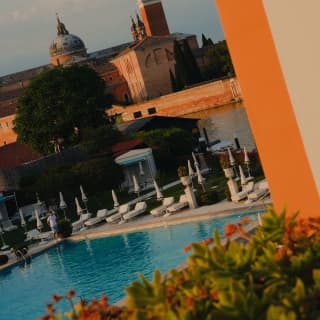
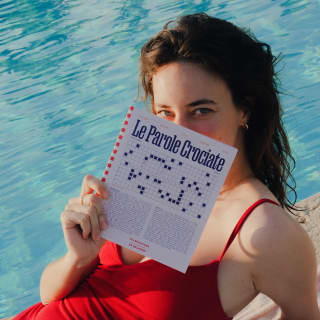
Belmond has drawn a significant map through this kaleidoscopic land of infinite potential: the romantic landscapes of Tuscany and Taormina, the iconic Italian coastlines of Portofino and Ravello, the cultural legacies of Venice and Florence. The spirit of these places—their history, wine, craftsmanship, cuisine, music and dialects—underscores their uniqueness and enhances their powers of expression.
The most luxurious way to arrive in Italy was on the legendary Venice Simplon-Orient-Express, the train reminiscent of femme fatales, aristocrats and spies, revolutionaries and writers such as Agatha Christie and Graham Greene, grand dukes and tsars, who would alight at the end of the line, at the railway station in Venice. Protagonists of this era would bring with them the spirit of central Europe and the charm and seductive powers of the East: a trace that can still be felt in the blond wood and velvet-upholstered carriages of the most famous and literary train in the world. Then and now, train passengers arriving in Venice are greeted with a radiant vision as they descend the steps of Santa Lucia station, their gaze captured by the scintillating waters of the Grand Canal.
In just a few decades, Hotel Cipriani changed the perception people had of Venice, extending its reach as a tourist destination to include the island of Giudecca, something that had been unthinkable before. Few places better epitomize the idea of villeggiatura, with the combination of the ethereal jade-green water of the lagoon and the inimitable, dreamy light. From the Hotel Cipriani’s swimming pool—the only saltwater one in Venice—guests are rewarded with a surreal view of Piazza San Marco and the Zattere promenade, beyond the blue-and-emerald line of the Giudecca Canal. The hotel is the preferred destination for Hollywood stars who arrive for the Venice Film Festival in early September. They are easy to spot, strolling through the most secluded areas of the gardens, sitting at the Cip’s Club restaurant on the water or in the hotel bars, sipping one of the famous signature cocktails.
Portofino, an enclave of colorful houses around a small square overlooking the harbor, offers two gems. The Splendido, perched high on the hill, dominates the landscape. Up there, a simple game of tennis becomes unforgettable. Nowadays, guests of the hotel can experience paradise by sipping a drink at sunset, ordering the “trenette avvantaggiate” at La Terrazza restaurant or taking a dip in the large saltwater infinity pool. The Splendido is counterbalanced by the Splendido Mare, nestled in the heart of the Piazzetta and at the center of the constant buzz of life, day and night, ever compelling.
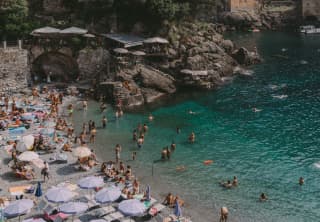
The incomparable landscape of Tuscany—“the most moving countryside that exists,” as French historian Fernand Braudel described it—with its extraordinary winemaking and agricultural traditions, is the setting for Castello di Casole, a heritage property with centuries of history. The pastoral property is complemented by nearby Villa San Michele, a panoramic sixteenth-century monastery in Fiesole surrounded by magnificent grounds. Florence, the City of Lilies, fades into a fantastical mirage, framed by the hills that encircle it.
Ravello, situated high on the Amalfi Coast, is a sunlit platform opening onto the Gulf of Salerno and Capri. With its palms, cascading bougainvillea and endless views, Ravello represents more than a millennium of history, tracing its roots to the Byzantine and Norman periods. Here in Ravello, the home of Caruso, time truly seems to stand still.
The Grand Hotel Timeo, located by an ancient Greek theater with a spectacular view of Mount Etna, and the town of Taormina have exerted an irresistible attraction on elite Northern European visitors in pursuit of an aesthetic ideal. Villa Sant’Andrea represents another experience of Taormina. Situated down by the sea, overlooking the crystalline waters of the Bay of Mazzarò, the hotel is housed in a nineteenth-century villa set in sumptuous subtropical gardens whose exotic scents instantly transport you elsewhere.
An intricate network of rules inform infinite aspects of life in these places: a certain floral scent; the blade of an oar that cuts through the water; an aperitif at sunset on a terrace high in the hills while, down below, the cobblestones resonate with unusual sounds and voices. People in villeggiatura exude a special kind of savoir vivre. They are curious, stand out from the crowd and demand something different, taking a magical break from their daily lives in search of new experiences and relaxation. Belmond is more than happy to accommodate, providing a private paradise far from the distractions of the real world.
The ethos of villeggiatura today still involves taking an unusually long break so you can slow down and focus on the self. It is the exact opposite of the quick getaway or the “all-inclusive” tourism of consumption, clichés and fleeting excursions. Villeggiatura is a layering of rhythms and rituals that are elegant, sometimes lazy, a mosaic of references to times gone by but mixed with contemporary comfort. It encourages you to explore your relationship with nature and connect deeply with the spirit of the place, which in turn provides the inspiration to look inward and enrich your experience of life and culture in the most elevated sense.
The above is an abridged extract from “Villeggiatura” © 2022 Assouline Publishing, Cesare Cunaccia. Purchase the full text here.
Delve deeper into
You might also enjoy

The Gelato of Madeira
Discover how native Madeiran José Diogo Costa, Creative Executive Chef at Reid's Palace in Funchal, transposed the island’s abundance of tropical fruits and liqueurs into the perfect scoop at Gelateria San Giorgio.
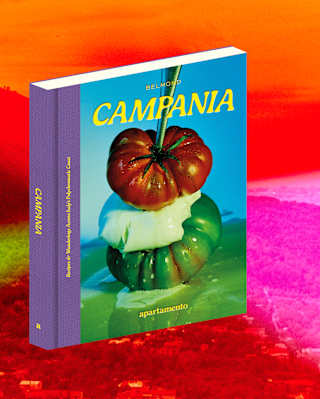
Eat Your Way Through Campania
Discover ‘Campania: Recipes & Wanderings Across Italy’s Polychromatic Coast’, a new cookbook in the series between Belmond and Apartamento that blends food and travel.
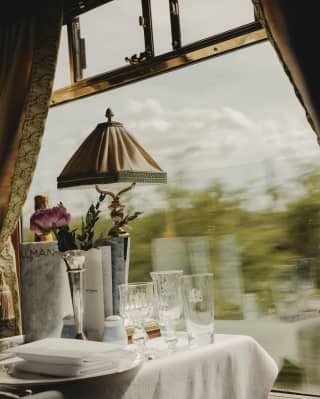
Three Chefs on the Meaning of Modern British Food
From April to October 2025, our iconic train reunites with star chefs Atul Kochhar, Phil Howard and Andrew Wong for the relaunch of the Celebrity Chef Dinners series. Today, join our special guests to find out what modern British food means to them and how together, we celebrate the diversity of Britain’s culinary scene.

Kirthanaa Naidu’s Malaysian Pantry Staples
Kirthanaa Naidu’s heritage inspires her work as a Malaysian Indian-born cook, stylist and creative director. Discover some of her Malaysian cookery staples, from savoury belacan to fragrant pandan, as told in our cookbook collaboration with Apartamento.
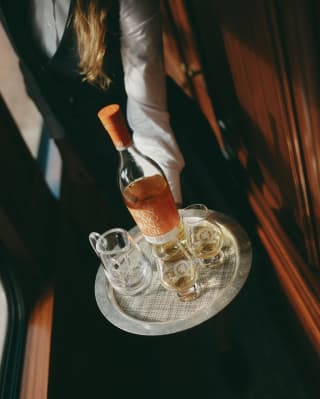
The Lingo to Know When Ordering Scotch Whisky
Whisky might be smooth, but knowing which one to order can be anything but. Millie Milliken, award-winning spirits writer and head of content for OurWhisky Foundation – a non-profit that lifts women in the global whisky industry – provides an expert guide to make sense of it when you see it on a menu.
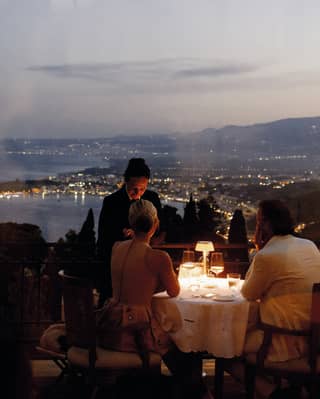
Guide: Belmond's Michelin Star Restaurants
From gold-plated dining overlooking the Venetian lagoon to pan-Asian elegance in the heart of Rio, Belmond is proud to offer some of the best Michelin-star restaurants in the world.

Recipe: André Chiang’s Penang Duck Curry
In our second Belmond and Apartamento book, ‘Penang: Recipes & Wanderings Around an Island in Malaysia’, we disembark in Georgetown along with acclaimed chef André Chiang. Among his storied anecdotes and rich lessons on local cultures, the Taiwan-born culinary curator of the Eastern & Oriental Express tells us all about a staple of Malaysian cuisine – the duck curry dish.